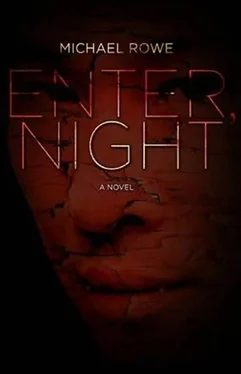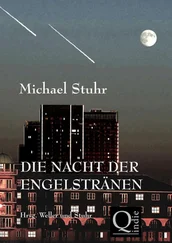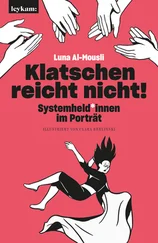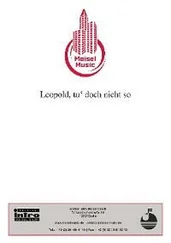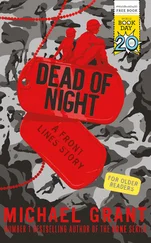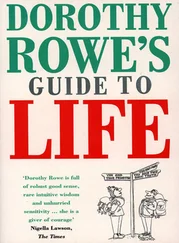At once, I heard the thunder of many feet behind me. An arrow sang past my ear and embedded itself in a tree, just above where the children were crouched. The little girl glanced upwards at the arrow, then back at me, her face full of hate.
Before my eyes, as if by a miracle, the demon-child’s body appeared to collapse upon itself, turning to smoke that blew away into the night. I saw that her brother, too, had similarly vanished, leaving in his wake that curious smoke which appeared to move of its own volition into the forest.
I stared at the spot where they had been crouching mere seconds before. For a moment, I again doubted whether or not I was dreaming, but I could feel the blood running down my leg where the little boy had bitten me, and I still felt the little girl’s grip burn on my throbbing wrist. The arrow wobbled in the tree trunk as though stirred by a strong wind. The Indians stood behind me, their terrified faces recording that they had seen the entire hellish spectacle. This comforted me, as there was a part of my mind that refused to register what had just occurred. But the expression on the faces of the Savages was proof to me that I had in fact seen the demonic spectacle, and that it had been no nightmare.
But growing in me at that moment was the surety I now held the secret to the difference between faith and true knowledge. While the very existence of those two devils itself was a blasphemy, it could only be a warning from the Lord of the potent deviltry hidden in what I thought were the harmless pagan superstitions of these poor, lost people. Whatever witchcraft had been arrayed against me that night, I had defeated it with the power of Jesus Christ, through the medium of the symbol of His suffering. Triumphantly, I brandished my cross at the Indians, exhorting them to draw close and listen.
“Behold!” I cried. “You have now witnessed with your own eyes the miraculous banishment of demonic spirits from the forest, sent to torment us, but who fled at the sign of God! Can you doubt, any of you, the salvation that lies in accepting Jesus Christ and becoming one with Him? Askuwheteau? Can even you doubt? Your arrow could not hurt them, but the cross of Christ burned them. Will you now accept to be baptized before we forge ahead on the journey to St. Barthélemy? Shall we gird ourselves in the armour of God and finish the task to which we have set ourselves?”
To my shock, the Indians jumped back away from me and averted their eyes, as though I myself were one of the very demons of which I spoke. Two of them seized their bows and laid arrows in the nock, pulling the string back and aiming them at me.
I threw up my arms in front of me, though I knew that if the Indians chose to let their arrows fly, nothing I did by way of self-preservation would save me.
And yet they did not: the arrows remained pointed in my direction, but the intent seemed more to warn me not to come closer than as the issuance of any sort of threat.
“Askuwheteau,” I demanded, trying not to betray my terror, yet at the same time striving not to unnerve the Savages whose arrows were aimed at my heart. “What is the meaning of this?
Askuwheteau said nothing to me by way of reply, and the Indians were silent. Then Chogan spat on the ground. He whispered something to Askuwheteau, then turned and stalked determinedly away. The other Savages muttered amongst themselves and threw angry glances in my direction. Askuwheteau said something to my two would-be murderers, who lowered their bows, but did not look away from my face.
“What is wrong?” I asked Askuwheteau, gesturing towards Chogan. “Where is he going? What did he say?”
“He said I should kill you and leave you here,” Askuwheteau said. “He says to leave you to find the other Black Robe by yourself.” Askuwheteau pointed to my leg, where the little boy had bitten me and the blood had soaked through my robe. “He says your people brought demons with you to this place and that you are cursed. He says he will not take you any farther and we must not bring the other Black Robe, the Weetigo, to us.”
“But you yourself saw, Askuwheteau, that the demons were Indian in form and feature. They were spirits that sprang from your own forests. They did not spring from the realm of Christianity. I did not summon them, they were here already. I sent them away.”
“Enough,” said Askuwheteau. “Enough lies. You have brought terrible things here with you, you and the other Black Robe. You have cursed this land. You have brought death, and worse. They,” he said, gesturing to the Indians, who were rapidly packing up the camp and carrying their belongings back along the path to the lake, “want me to leave you here, but I told the French I would protect you. You can come with us now, Black Robe, or you can stay. The choice is yours to make. But we will not go farther. You choose.”
I felt as though all the blood had drained from my body. Surely I was not to be left here alone in this place to find the mission and Father de Céligny without their guidance and protection?
I begged and pleaded with Askuwheteau to stay with me, but even if he had been thusly inclined, he was outnumbered. There were some who actually wished me dead and it had become clear to me that he was the one person who was keeping me from that fate. I told him that, with me, even the deviltry of his own people was powerless before the power of Christ in the hands of one anointed.
I threatened that the French would punish them for abandoning me, but even as I said it I knew that it rang hollow. The Indians would say that I had drowned, or perished in some other way due to my own carelessness or clumsiness.
Likewise, I could not force them to stay with me. I had no leverage. We were not united in Faith, or by loyalty to our fellow man. We did not even have the same sense of “fellow man.” And the Indians would do as they wished, or rather, in this instance, as their terror of this place demanded. I did not count them as evil for abandoning me. I forgave them, even in the midst of my horror at the abandonment itself. I literally saw myself in the jaws of Hell, at the mercy of its Infernal ambassadors, two of which I had already met.
In the end, there was no choice, of course, though I wished there were.
My duty as a Christian and as a priest was clear: I was to find Father de Céligny and come to his aid, in whatever forms that might take. Perhaps this was to be my own particular martyrdom-not death under torture at the hands of the Hiroquois, but rather a slow death by starvation and freezing, looking for the Light of Christ in a dark forest on the very edge of the world. Ad majorem Dei gloriam .
Askuwheteau pointed me in the direction of St. Barthélemy and said he hoped my God would save me. I told him I prayed my God would save us both, but he and I knew that we were not saying the same thing to one another.
When the Indians abandoned me, I forced myself not to run after them, just as I’d forced myself not to weep in their presence. Now, I did weep. I knelt down in the dirt of the forest that had become my personal Garden of Gethsemane and wept from the deepest possible pit of my soul. I wept. I cursed God. I begged forgiveness, but cursed Him again, and asked for forgiveness again, and felt myself granted absolution. I did not weep blood as Our Lord is said to have done, but I have never felt closer to Christ’s Passion than I did at that moment, for I felt truly alone. Throughout it all, I held tight to my crucifix, lest those two infernal devils return from the forest to taunt me.
When the first streaks of dawn lightened the eastern sky, I felt safe enough to release my hold on the crucifix. I was shivering. I spoke to myself as though I were my own friend, ordering myself to rise and collect some firewood in order to build up the fire and warm myself. There would be no one else to guide, help, protect, or support me in my aims unless, by some miracle, I found life and shelter at my destination.
Читать дальше
